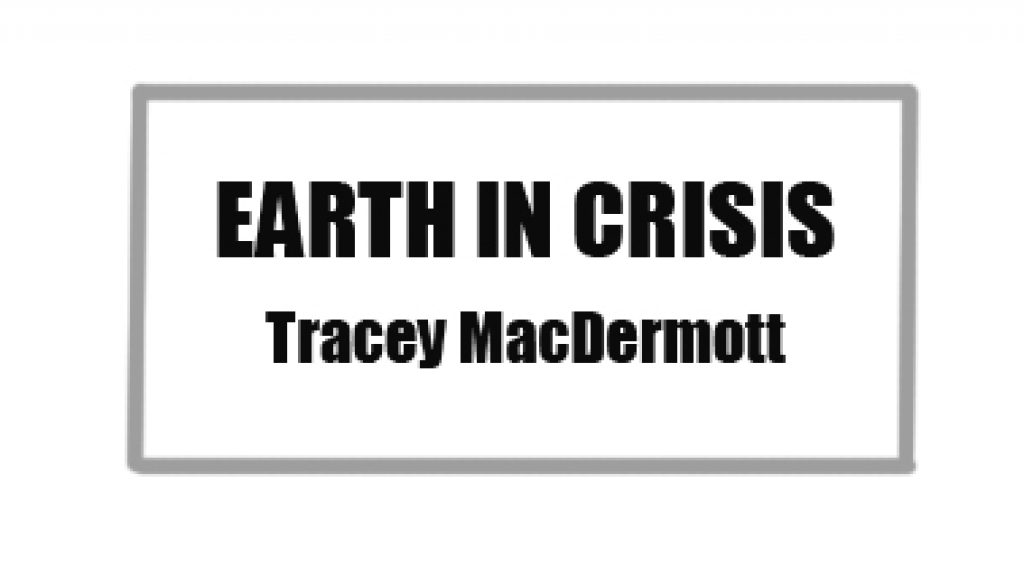‘Welcome Back, America!’
Recommitment To Climate Not A Moment Too Soon
By Tracey MacDermott
Board Chair, GPHC, Inc.

On Jan. 20 our nation swore in a new president, whose administration will be the most diverse team ever — looking more like the full representation of the people of America.
President Joe Biden and Vice President Kamala Harris have promised a clear path for citizenship of immigrants, reverse the travel ban, and the strongest plan to combat the climate emergency. Back in November, when news agencies called the election for Biden/Harris, celebrations ensued, not just here in the U.S. but worldwide. It is time, Biden said, for the country to heal.
In Paris, Mayor Anne Hidalgo immediately tweeted, “Welcome back America!” That tweet represents more than just an opportunity for America to re-join its partners in diplomatic relations. It also marks a return to the Paris Climate Agreement and our responsibility to work with world leaders to solve the climate disaster we are facing.
The U.S. is the second -highest emitter of greenhouse gases and our return to work with other nations to limit those emissions is key to meeting the goals of the Paris Accord. Our country will need to produce a plan to reduce emissions from the energy sector. Biden has laid out a $2 trillion plan to advance our country on a renewable path. The plan states that by 2035, no electric power will be generated from fossil fuels, and a zero net emissions of greenhouse gases by 2050.
Our actual commitment in the Paris Agreement included a 26-28 percent reduction of greenhouse gas emissions below the 2005 levels by 2025. President Biden plans to immediately implement many climate actions. Some of these actions include:
• Implementation of the Clean Air Act, previously put forth by President Barack Obama
• Limiting methane pollution from oil and gas
• Slowing extinction rates and protect biodiversity
• Working towards 100 percent clean energy and zero emission vehicles
• Permanently protecting the Arctic National Wildlife Refuge in Alaska.
It is important to note that climate activists focus on the term renewable energy versus clean energy, as they are concerned that natural gas is too often consider in the mix of clean energy technologies. Although, natural gas is cleaner than coal, the drilling and extraction leads to leakage of methane, a potent greenhouse gas.
Biden has chosen Jennifer Granholm as his choice for Energy Secretary. Granholm supported the Standing Rock Sioux in opposition to the Dakota Access Pipeline and has been a strong supporter of green energy. In addition to Granholm, former Environmental Protection Agency Director Gina McCarthy will head the White House office on climate change. McCarthy’s experience on climate issues is deep. And, Pete Buttigieg is expected to be the Transportation Secretary, and his department will need to be at the forefront of climate policy.
There are also positive developments in our own backyard. Colorado state Rep. Edie Hooten, a Boulder Democrat, has been a climate champion. Last year Hooten sponsored House Bill 20-1064, calling for studies on the feasibility of allowing Community Choice Energy (CCE). As per Hooten’s legislative website, the bill would include:
• Cheaper, cleaner electricity; the creation of new energy programs and local jobs; keeping energy dollars local
• Competition, choice and greater local control
• Communities would be allowed to choose an alternative electricity supplier
• Incumbent utilities would still own and operate the “poles and wires” (electricity delivery)
• The ability for individuals to opt out and buy their electricity from the utility if they wish
Last year Hooten’s bill passed the House Energy and Environment Committee but did not clear the House Appropriations. It is expected that she will bring it back this legislative session.
Last month, Denver Congresswoman Diana DeGette, along with others, introduced the Roadless Area Conservation Act designed to safeguard America’s wild spaces. Colorado Gov. Jared Polis also introduced his Greenhouse Gas Pollution Reduction road map, which targets the state reach 100 percent renewable energy by 2040.
All this work comes not a moment too soon. We hit 417 parts per million of CO2 in our atmosphere last May. In addition, we have experienced record heat and drought. With the disappearance of the Arctic Ice Sheets, decline of permafrost and continual deforestation, 2021 must be a year of focused determination to set policies in place to stop the trajectory of climate collapse. We must act now.
Tracey MacDermott is chair of the board of Greater Park Hill Community, Inc. She was trained as a Climate Reality Leader in 2017, and is currently the Statewide Co-Chair of the Climate Reality Project for the 100% Committed Campaign.

